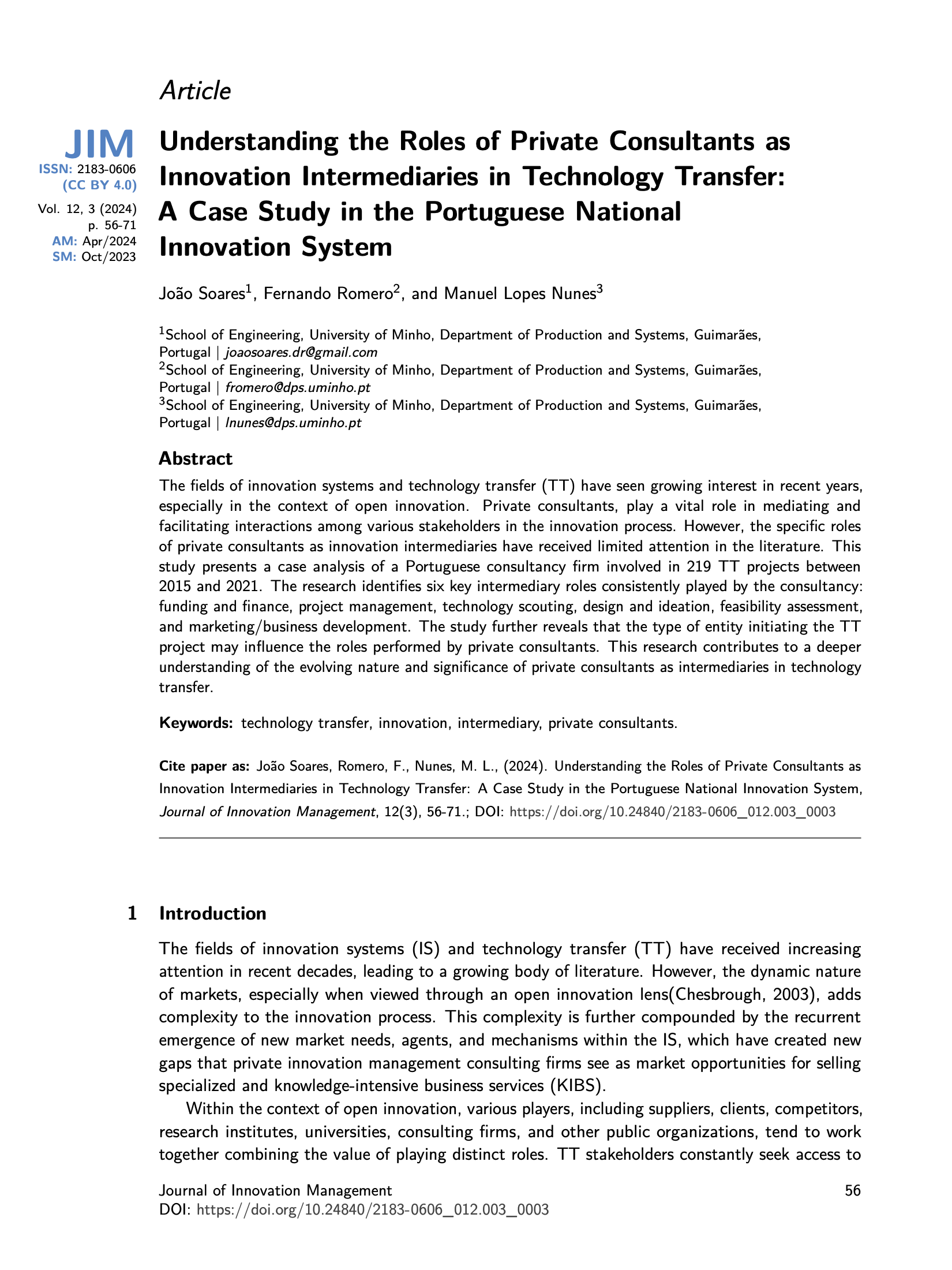Understanding the Roles of Private Consultants as Innovation Intermediaries in Technology Transfer: A Case Study in the Portuguese National Innovation System
Main Article Content
Abstract
The fields of innovation systems and technology transfer (TT) have seen growing interest in recent years, especially in the context of open innovation. Private consultants, play a vital role in mediating and facilitating interactions among various stakeholders in the innovation process. However, the specific roles of private consultants as innovation intermediaries have received limited attention in the literature. This study presents a case analysis of a Portuguese consultancy firm involved in 219 TT projects between 2015 and 2021. The research identifies six key intermediary roles consistently played by the consultancy: funding and finance, project management, technology scouting, design and ideation, feasibility assessment, and marketing/business development. The study further reveals that the type of entity initiating the TT project may influence the roles performed by private consultants. This research contributes to a deeper understanding of the evolving nature and significance of private consultants as intermediaries in technology transfer.
Article Details
Authors who publish with this journal agree to the following terms:
- Authors retain copyright and grant the journal right of first publication with the work simultaneously licensed under a Creative Commons Attribution License that allows others to share the work with an acknowledgement of the work's authorship and initial publication in this journal.
- Authors are able to enter into separate, additional contractual arrangements for the non-exclusive distribution of the journal's published version of the work (e.g., post it to an institutional repository or publish it in a book), with an acknowledgement of its initial publication in this journal.
- Authors are permitted and encouraged to post their work online (e.g., in institutional repositories or on their website) prior to and during the submission process, as it can lead to productive exchanges, as well as earlier and greater citation of published work (See The Effect of Open Access).

